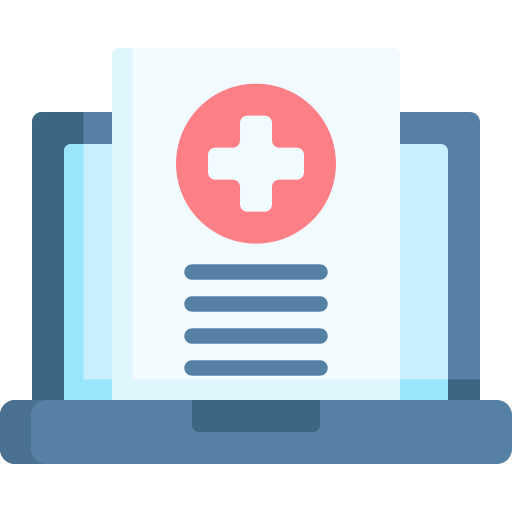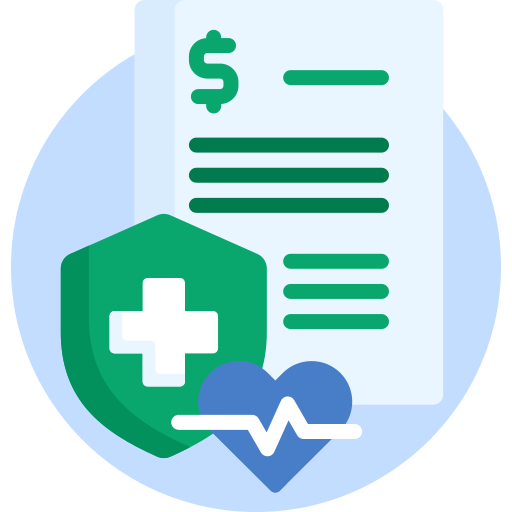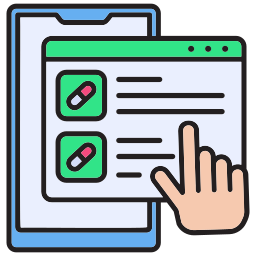As digital health companies continue to innovate and develop cutting-edge healthcare solutions, one of the most significant challenges they face is EHR integration. Healthcare systems today rely on a variety of EHR platforms, such as Epic EHR, Cerner EHR, and Athenahealth EHR, to store and manage patient data. However, these systems were not designed to easily communicate with each other, making it difficult for health tech companies to access and share essential medical information across systems.
The Importance of EHR Integration
EHR integration plays an important role in improving patient care by enabling seamless data exchange across the healthcare ecosystem. By accessing comprehensive patient data, health tech solutions can provide personalized, real-time care recommendations that improve treatment outcomes and streamline workflows for healthcare providers. However, the complexity and fragmented nature of EHR systems make this integration process time-consuming, costly, and challenging.
Understanding the EHR Integration Landscape
Integrating with EHR systems like Epic or Cerner requires navigating complex proprietary systems and dealing with various standards, including FHIR and HL7. Each EHR system operates differently, making the process of unifying data from multiple sources challenging. This is where health tech companies often struggle—especially when trying to connect with multiple EHR systems used by hospitals and clinics across different regions.
Each hospital may use a different EHR system, and these systems often evolve over time with software updates that require the integration solutions to be flexible and continuously adaptable. For health tech companies, the task of maintaining and updating integrations to keep pace with evolving technologies and regulations can be overwhelming.
Related Read: Epic EHR Integration – Unlocking Seamless Healthcare Connectivity
The Technology Stack Behind Successful Integration
At Mindbowser, we help digital health companies overcome these challenges by leveraging our expertise and solution accelerators. We specialize in building middleware solutions that act as reusable integration layers to connect your platform with various EHRs.
Our technology stack includes:
🔸 Cloud platforms for hosting integrations and ensuring scalability and security.
🔸 API integrations that allow seamless data transfer between different healthcare systems.
🔸 FHIR and HL7 protocols for standardized data exchange, enabling interoperability between different systems.
🔸 Data pipelines that aggregate and process patient data in real-time, making it actionable for healthcare providers.
By using standardized frameworks and pre-engineered solutions, we can significantly reduce the time required to implement EHR integrations, allowing your product to go live faster.
The Benefits of Seamless EHR Integration
Achieving seamless EHR integration offers a multitude of benefits for both healthcare providers and patients:
✅ Improved Decision-Making: With access to complete and real-time patient data, healthcare professionals can make more informed decisions, leading to better treatment outcomes.
✅ Increased Efficiency: Integrating with EHR systems reduces the need for manual data entry and minimizes the risk of errors, ultimately improving operational efficiency across the healthcare system.
✅ Better Patient Outcomes: Real-time access to patient histories, diagnoses, and lab results enables clinicians to provide timely interventions, ensuring that patients receive the right treatment at the right time.
✅ Cost Reduction: Streamlining the data collection and sharing process helps lower operational costs, especially by minimizing administrative overhead and reducing the time spent on manual tasks.
Related Read: Healthcare Integration: The Understanding & Its Impact in Healthcare
Real-World Use Case: Accelerating Clinical Trials
For example, one of the key benefits of EHR integration is in the field of clinical trials. By automating the process of patient screening and enrollment, EHR integration can accelerate clinical trials and improve recruitment. EHRs store rich patient data that can be leveraged to identify highly eligible patients for trials, ensuring better recruitment rates and minimizing the time spent on manual screening processes.
Mindbowser has worked with several digital health companies to build and integrate middleware solutions for clinical trials, improving the efficiency of patient recruitment and enhancing trial data quality.
Addressing the Challenges of EHR Integration
While the benefits are clear, integrating with EHR systems does come with its own set of challenges:
Diverse Standards: Different EHR systems support different data formats, making it difficult to create a one-size-fits-all integration solution. Health tech companies often need to customize their integrations based on the specific requirements of each EHR system.
Complex Maintenance: Once the integration is in place, it requires ongoing maintenance and updates to keep up with changes in the EHR systems, which can be a significant drain on resources.
Regulatory Compliance: EHR integration needs to adhere to strict healthcare regulations such as HIPAA and SOC2 to ensure that patient data is kept secure and compliant.
Related Read: Benefits and Challenges of The Electronic Health Record
How Mindbowser Can Help?
At Mindbowser, we specialize in helping digital health companies overcome these integration challenges. Here’s how we approach the process:
➡️ Discovery and Planning: We begin by understanding your specific data needs, including which EHR systems you need to integrate with and what data points are required. This helps us design a tailored solution that meets your unique requirements.
➡️ Custom Middleware Development: Our team builds a middleware solution that acts as a bridge between your platform and the EHR systems. This solution is designed to be scalable, secure, and adaptable to changing technology.
➡️ Seamless Integration and Testing: We ensure that the integration works smoothly with the selected EHR systems by running extensive tests in sandbox environments. Once everything is functioning as expected, we deploy the solution to your production environment.
➡️ Ongoing Support and Maintenance: We don’t just stop at implementation. Mindbowser offers ongoing support to ensure that your integration remains operational and up-to-date, minimizing downtime and ensuring compliance with healthcare regulations.
The Path Forward: What’s Next for Your Company
As a digital health company, deciding how to approach EHR integration is crucial for your long-term success. Here are the next steps you can take:
🔰 Schedule a Discovery Call: Contact us to schedule a discovery session where we can dive deep into your specific EHR integration needs and explore the best solution.
🔰 Get a Ballpark Estimate: Based on your requirements, we will provide an estimate for the time, cost, and resources needed to implement the integration solution.
🔰 Collaboration and Implementation: Once we have a clear understanding of your needs, our team will work closely with yours to ensure that the integration is successfully implemented and meets your expectations.
🔰 Ongoing Optimization: As your business scales, we will continue to optimize and expand the integration, helping you stay ahead of the curve and maximize the value of your health tech solutions.
Conclusion
EHR integration is a critical component for modern health tech companies seeking to improve patient outcomes, streamline operations, and enhance clinical research capabilities. With the right strategy and a strong integration partner like Mindbowser, you can overcome the complexities of connecting with EHR systems, reduce the costs associated with integration, and ultimately deliver better healthcare solutions.
If you’re ready to take the next step toward seamless EHR integration, Mindbowser is here to help. Contact us today to start the conversation.

Pravin Uttarwar, CTO of Mindbowser
As the CTO of Mindbowser, a healthcare-focused software development company, I am dedicated to delivering cutting-edge digital solutions that transform patient care and operational efficiency. With over 16 years of experience and as an MIT alumnus, I specialize in healthcare interoperability, FHIR-compliant systems, and AI-powered platforms, crafting scalable products and architectures tailored to the unique needs of healthcare providers and enterprises.
I have spearheaded the development of over 100 products and platforms, guiding them from concept to full-fledged solutions. My expertise extends to scaling remote tech teams, driving EHR integrations, and building secure, cloud-native healthcare solutions. By shaping technology visions and roadmaps, I help clients achieve long-term growth and success in the rapidly evolving healthcare landscape.
HealthConnect CoPilot enabled us to access real-time patient health data through integration with Apple HealthKit, enhancing care delivery while maintaining HIPAA compliance. This led to personalized care and improved outcomes for patients.

AI-enhanced Obstetrics Clinical Decision Support Platform
HealthConnect CoPilot's integration with Epic's Hyperspace has transformed our workflow. Automated post-delivery examinations and HL7 protocol use ensure accurate updates to Epic. Their expertise empowers informed decision-making in childbirth

Top Provider for Customized Healthcare Solutions
HealthConnect CoPilot's helped us to integrate with leading tracking devices such as Apple Watches and Fitbit. This integration enables effortless syncing of health data, providing users with real-time insights displayed directly on our flagship products: smart mirrors and digital calendars.

A Provider of Customizable Display Solutions
Post a comment Cancel reply
Related Posts
FHIR Versions: The Past, The Present & The Future
The Fast Healthcare Interoperability Resources (FHIR) standard has revolutionized healthcare data exchange, enabling seamless interoperability…
What Are CDS Hooks? A Simple Guide for Healthcare Providers
CDS Hooks are changing how clinical decision support (CDS) works inside EHRs, bringing real-time, context-aware…
Streamlining Behavioral Healthcare with Epic EHR Integration
Behavioral healthcare providers are facing an increasing demand for streamlined systems that can integrate multiple…
How One Maternal Health Startup Is Revolutionizing Charge Capture in Epic?
Helping Moms Shouldn’t Involve Wasting Time or Resources Maternal health startups are doing some of…
EHR Integration for Diabetes Management: A Scalable Solution for Modern Healthcare Platforms
Managing chronic diseases like diabetes requires consistent care, personalized treatment, and uninterrupted access to patient…
Medical Coding Interoperability: How Healthcare Platforms Can Seamlessly Integrate with EHRs
The healthcare industry continues to struggle with fragmented medical coding workflows, especially when exchanging structured…








